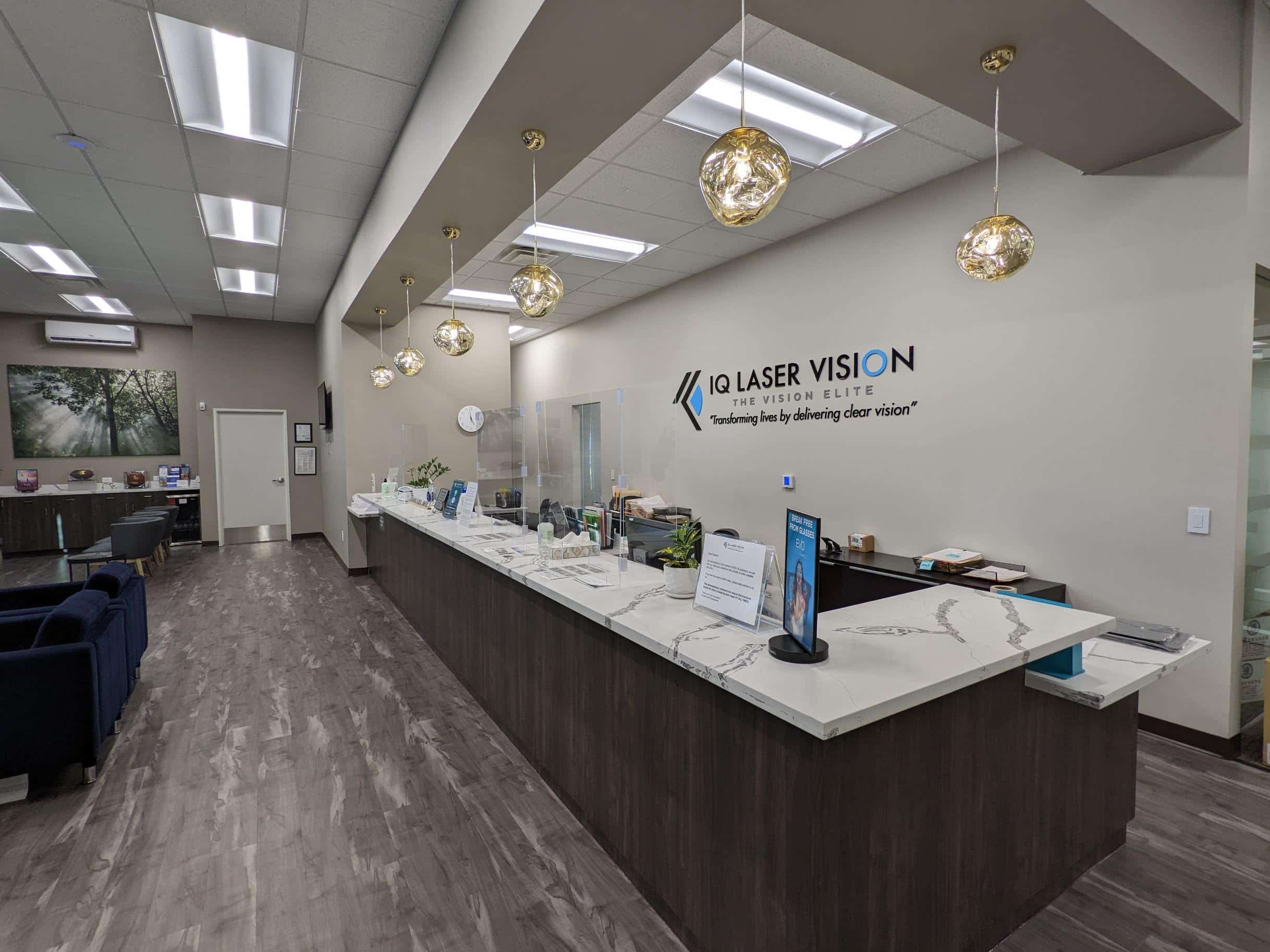Cataracts are a common condition whereupon the lens of your eye clouds over. This clouding can interfere with your day-to-day life, causing blurred or double vision, sensitivity to light, and challenges seeing in the dark. Cataracts can be caused by age, or trauma, or they can be congenital (i.e. present from birth). If you experience vision changes, it is essential to seek the services of an ophthalmologist, as these could be indicative of cataracts. For those exploring alternatives to cataract surgery, LASIK surgery in Houston may offer another solution for improving vision.
After cataracts are diagnosed, you can then review your options for cataract surgery in Houston, which generally involves replacing your natural lenses with an intraocular lens (IOL). The type of IOL lens will depend on the severity and symptoms of your cataracts.
Monofocal IOLs provide clear vision at a single distance, typically distance vision. Your vision may require you to wear glasses for reading or close work. In contrast, Multifocal IOLs can provide clear vision at multiple distances, reducing the need for glasses. However, multifocal IOLs may have limitations in certain lighting conditions. Toric IOLs are specifically designed to correct astigmatism, a common eye condition that causes blurred vision.
But you need not navigate the complex world of IOLs on your own. A qualified ophthalmologist - also known as a cataract specialist - will work alongside you throughout the entire process. They will diagnose your cataracts and recommend a corrective treatment - which they will then perform. From there, they will monitor your recovery to ensure satisfactory results. If you're considering other forms of vision correction, PRK surgery in Houston is another effective option, particularly for patients with thin corneas or dry eyes.
Unfortunately, not all support for cataracts is made equal. There are several different eye care options in Houston - and here's why you should choose IQ Laser Vision.
There are many signs that go along with having a cataract. Although the most common sign is blurry vision, other signs include:






If you experience any of these signs or any sudden vision changes, talk to your eye doctor at IQ Laser Vision in Rowland Heights and other convenient locations. Although they sound like they could be cataracts, the only way to know for sure is to see your eye doctor.
They will evaluate any serious eye conditions or diseases during your eye exam.
Aging is the most common cause of developing cataracts. During middle age, it becomes more common to have hardened, thicker lenses. The tissues in the lens can break down and form proteins that make the lens cloudy. Over time, this makes your vision blurry. Your blurry vision will only get worse as you continue getting older. It may sound young, but you can start to develop cataracts as young as 40 or 50 years old!
Even if you have cataracts at this age, you may not realize it, since they probably won’t affect your sight. But the blurry vision and other signs that go with cataracts will get worse with time.
If you're older than 60, you're more likely to experience issues with your vision from cloudy lenses. If you've had any eye trauma or previous eye surgery, these can also cause cataracts by damaging the lens and limiting the light that reaches the retina.
If you're a diabetic, you’re more likely to develop cataracts since high blood sugar can increase fluid in the retina. Reduce your risks of developing cataracts by keeping your blood sugar as under control as you can! Even the medications you take can increase your risk of developing cataracts! Be careful if you take steroids or need radiation treatment. Talk to your doctor if you’re concerned about these side effects.
You can even be born with cataracts or develop them as a child. This is most likely to occur after an eye injury or an eye infection.

Love it! In the end, it is completely like being young again. The technique is top of the line and I wonder why I can see so clearly now, I see every pore. Only two weeks have passed and already I can thread the needle. I must say that the procedure is awesome!
If you have cataracts that are in the early stages, you may be able to get away with only needing prescription glasses. Talk to your eye doctor if you’ve increased your prescriptions frequently but your vision no longer feels like it’s improving. This is a common sign that it’s often time for cataract surgery. Cataracts only affect the lens, which makes some people think it’s fine to delay surgery. Most cataract surgeons recommend having cataract surgery when cataracts start to seriously impact your life. That means if you can no longer take part in your favorite hobbies or activities like fishing, cooking, or sewing because you can’t see, you may want to consider surgery.
Cataract surgery replaces your cloudy natural lenses with an artificial lens, known as an intraocular lens. The intraocular lens (IOL) is what allows you to have clear vision after cataract surgery!

Cataract surgery starts with numbing eye drops. This is to make sure you never feel any pain during the procedure. Your surgeon at IQ Laser Vision in Rowland Heights and other convenient locations will then use a speculum to support your eye before creating a small incision in the cornea. They use an ultrasound probe or laser to break up the natural lens.
Then, a suction tool gently removes the pieces of your natural lens. You won’t feel anything during this! Your surgeon will insert the artificial lens and place a protective patch over the treated eye.
There are many kinds of IOLs available. Your surgeon will help you choose an IOL based on your lifestyle and needs. You can even find IOLs with coatings to protect your eyes from the sun’s rays!
The lenses are different prescriptions to fit your needs. Your eye surgeon will measure your eye before cataract surgery. This allows them to choose the best lens size to match your eyes.
Options include:

After your surgeon at IQ Laser Vision clears you to go home, you’ll need to have a family member or close friend drive you home. Don’t think you can drive yourself home because you can’t. Take the time while you’re on your way home to rest! Rest is the best thing you can do after having cataract surgery. Your eye may feel dry, irritated, or scratchy, but these should go away after a few days.

Avoid any strenuous activities, especially anything that will make you bend over at the waist. This means no intense exercising, at least not right away! You can go for light walks around the block once you feel up to it but leave it at that to be safe.
You should also be very careful with your eye when you’re showering or bathing, since you shouldn’t get any water in your eyes. Shower with your eyes closed to prevent any water getting in your eyes while your eye heals.
The full recovery takes about 8 weeks, but it may take longer or less depending on your needs. Don’t forget to take the eye drops prescribed by your eye doctor to reduce inflammation and prevent infection exactly as recommended.
Following all instructions from your IQ Laser Vision ophthalmologist is the best way to ensure you’ll have a healthy and easy recovery after cataract surgery!
Request An Appointment
Typically, you’ll only have surgery on one eye at a time. For the best possible results, you’ll need to wait several weeks to a month between procedures. This period allows the first eye to heal so you can see before the second procedure.

There is no way to guarantee you will never develop cataracts. But the good news is, there are things you can do to try to prevent their early development.

IQ Laser Vision was founded out of genuine love and appreciation for the results of high-quality eye care. Our founder, Dr. Robert T. Lin, decided to get a corrective cataract procedure and was so pleased with the efficiency and results of the operation that he decided to found IQ Laser Vision. Fast forward a few years, and IQ Laser Vision is a North American leader in certain procedures, based on experience and the volume of surgeries performed. We also specialize in innovative procedures like EVO ICL in Houston, providing patients with advanced alternatives for vision correction.
We operate via a patient-focused approach. Your comfort is put first, and our professionals are trained to be as friendly and empathetic as possible. Furthermore, our team is multilingual, ensuring that we can conduct communications in a number of preferred languages.
Curious? Get in touch to discover more about what makes IQ Laser Vision's approach so uniquely effective.
We offer welcoming and professional consultations. Our cataract specialists in Houston will ask you questions about your vision, carefully examine your cataracts, and discuss the next steps. We encourage you to ask questions and will discuss the benefits and risks of surgery as required.
Take control of your vision and claim your free consultation today. You can book an appointment here at your convenience. If you have a question you'd like to get answered, you can also reach out to our friendly team.
Take Our Cataract Self-TestNo. You should not feel any discomfort. Your eyes will be numbed using anesthetic eye drops and you will be given light sedation.
You will spend only a few hours at the surgery center and will go home the very same day.
Each patient is unique and recovery time varies accordingly. Typically, patients see well enough to perform daily-activities the day after the procedure, and fully recover in about 2 weeks. Strenuous and physical activities should be avoided for 2 weeks after the procedure.
Night-vision improvement is one of the goals and benefits of the procedure but we will examine you to ensure you are fully recovered enough to do this highly demanding visual activity
No. Once a cataract has been treated it cannot return, because your existing lens is removed. However, over time, some patients may experience “Cataract-like symptoms,” such as cloudy vision. This conditionis known as posterior capsular opacification (PCO), sometimes referred to as “secondary cataract.” This occurs when the capsule which holds the lens becomes cloudy. It is easily treated with a simple procedure called YAG posterior capsulotomy that is quick, painless, and most patients see an improvement in vision clarity within a few days.
Although highly unlikely, an IOL can be removed/replaced with if needed.
















